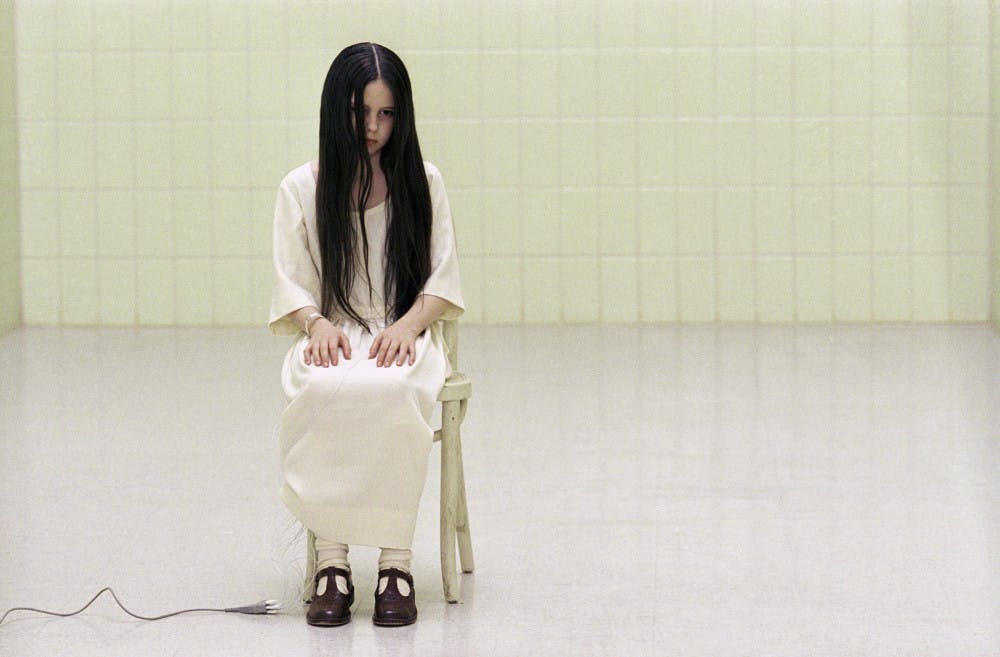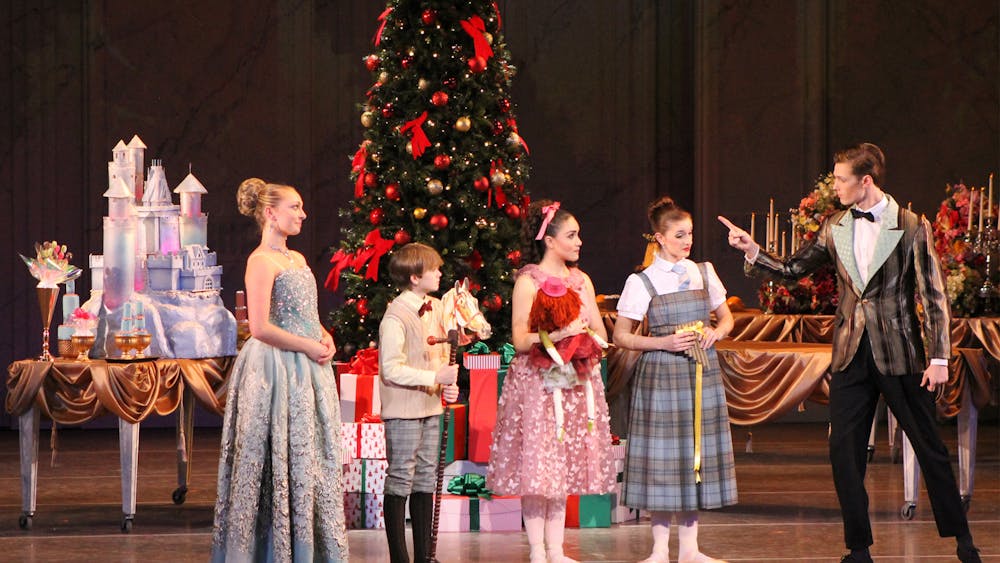When my friends and I watched our first horror movie — “The Ring” — in third grade, we had nightmares for days about Samara crawling out of the TV with her rotting flesh and iconic, unkempt black hair. But we were hooked.
From then on, we’d watch horror movies almost every weekend, biking to Meijer to pick up Redbox DVDs to watch in my friend’s basement. Armed with just Mountain Dew Voltage and jalapeno potato chips against villains who would slash, murder and maim, we devoured horror movies one after another.
Even today, when reunited during breaks, we curl up with some snacks and a horror movie. The Samara nightmares no longer come (thank God), but horror never lost its charm.
Growing up, my mom would often drop in on movie nights to ask, with overwhelming repulsion, “Why do you like this stuff?” Usually we’d just laugh at my mom’s baffled queasiness, but she brought up a good question, especially now in a new golden age of horror as the genre edges in from the fringes to the mainstream. What is the allure of the bone-cracking gore, cold dread, and moments of terror that horror movies bring?
In his 1919 paper, “The Uncanny,” psychoanalyst Sigmund Freud claimed horror brought up thoughts and feelings repressed by the ego. Psychologist Carl Jung went a similar route, explaining how horror depicts images from the collective unconscious.
But that's a little concerning. And since it's just impossible to tell if horrific thoughts of possessed children and murderous demons dwell in horror fans’ repressed psyches or in our society’s collective unconscious, I’d rather look to different reasons.
Article after article talks about how horror flicks, like roller coasters, allow you to feel heart-palpitating adrenaline in a safe, comfortable environment, where the lives of imagined characters, not our own, are on the line.
We know that in two hours or so, we’ll turn off the screen with our heads still attached to our necks, our hearts still in our chests, and our psyches safe from sustained trauma. With our brain's limbic systems wired for fear, horror allows some safe drama and artificial anxiety to be injected into our monotonous lives.
Safe in our living rooms and ready to turn off the TV at a moment’s notice, we have control over the situation and therefore our own fear within it. How ideal does it sound to have control of our own negative emotions like fear, able to just switch it on and off with the press of a remote?
Because people naturally pursue pleasure and avoid pain and negative emotion, horror movies seem counterintuitive. Even more contrary to common sense, increased negative emotion, including fear and anxiety, is correlated with increased enjoyment during horror movies, according to a 2007 Journal of Consumer Research study.
This correlation between distress and delight is rooted in the coactivation of negative emotions and positive ones or in other words, the overwhelmingly relief felt after the killer is defeated, the jump scare fades, the movie ends, according to the study. Terror, Stephen King once wrote in “Danse Macabre,” is the finest emotion.
Horror movies also offer catharsis from the real world. It isn’t surprising that horror is coming alive again on our screens during a time fraught with political divisiveness, environmental disaster and seemingly constant peril.
The horror genre is also one of the few that can almost never fail. If a movie is bad, it makes you laugh, like the flying CGI goat from “Drag Me to Hell” or really any clip from “Frankenfish.” But great horror movies work a little differently.
While people turn to romance or comedy to feel good, they turn to good horror movies for excitement, to leave a story feeling nervous and unsettled.
Freud uses the term “Das Unheimliche” to discuss the eerie familiarity created when the mundane becomes controlled by unknown forces — something we see in horror movies, where everyday situations and normal families are tossed around like ragdolls by a nameless power.
There’s a charm in that unraveling of the unknown and of evil, and it speaks to our collective uncertainty about the mechanics of the world.
When we look at horror movies, our viscerally human existential fear stares back, along with the understanding that all our paths someday end at a graveyard. All of us are doomed in some way to one end, and horror pulls our knowledge of our own mortality to the forefront of our minds as we watch characters, fates tied by a specter’s hand, face our own greatest fear and universal destiny.






